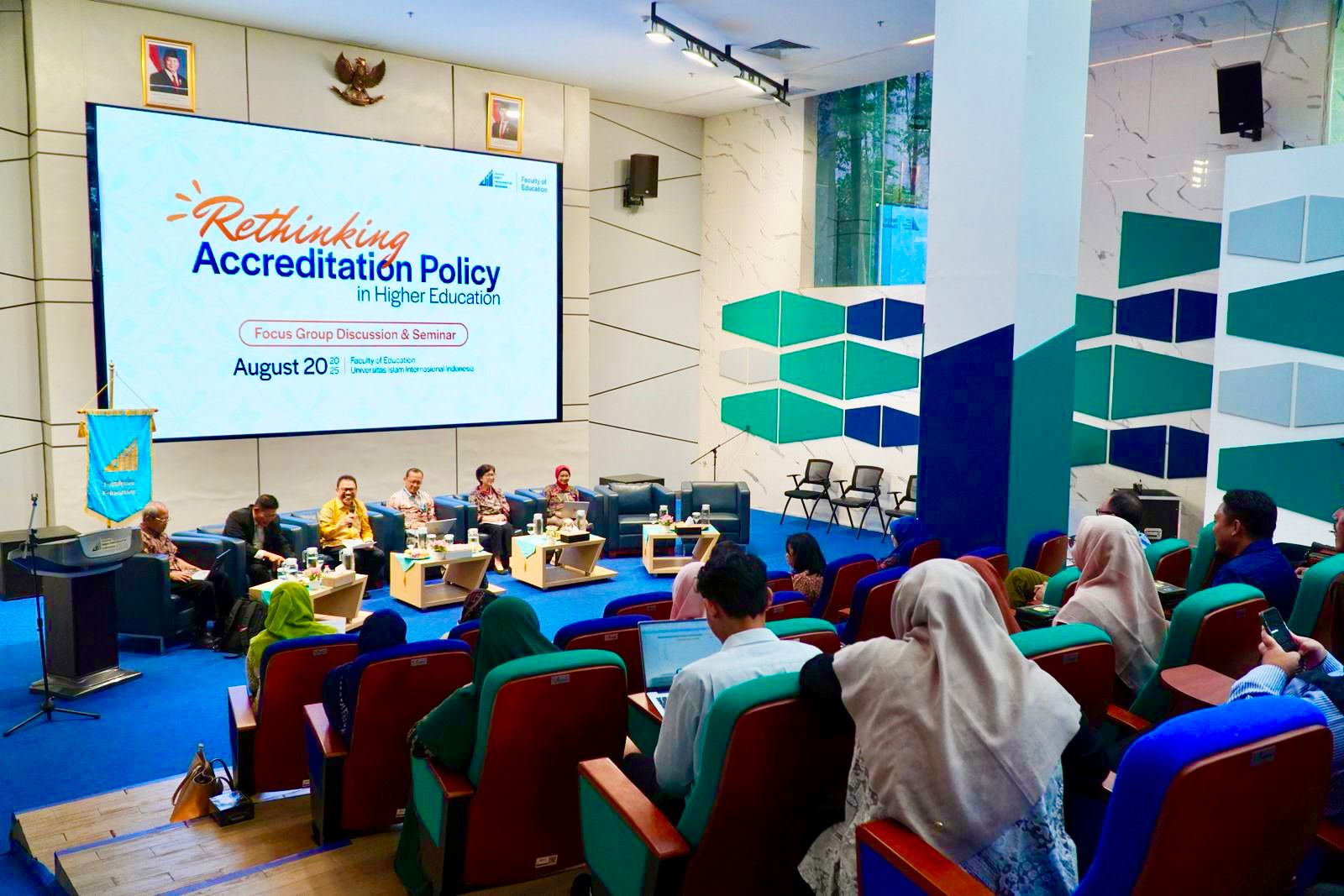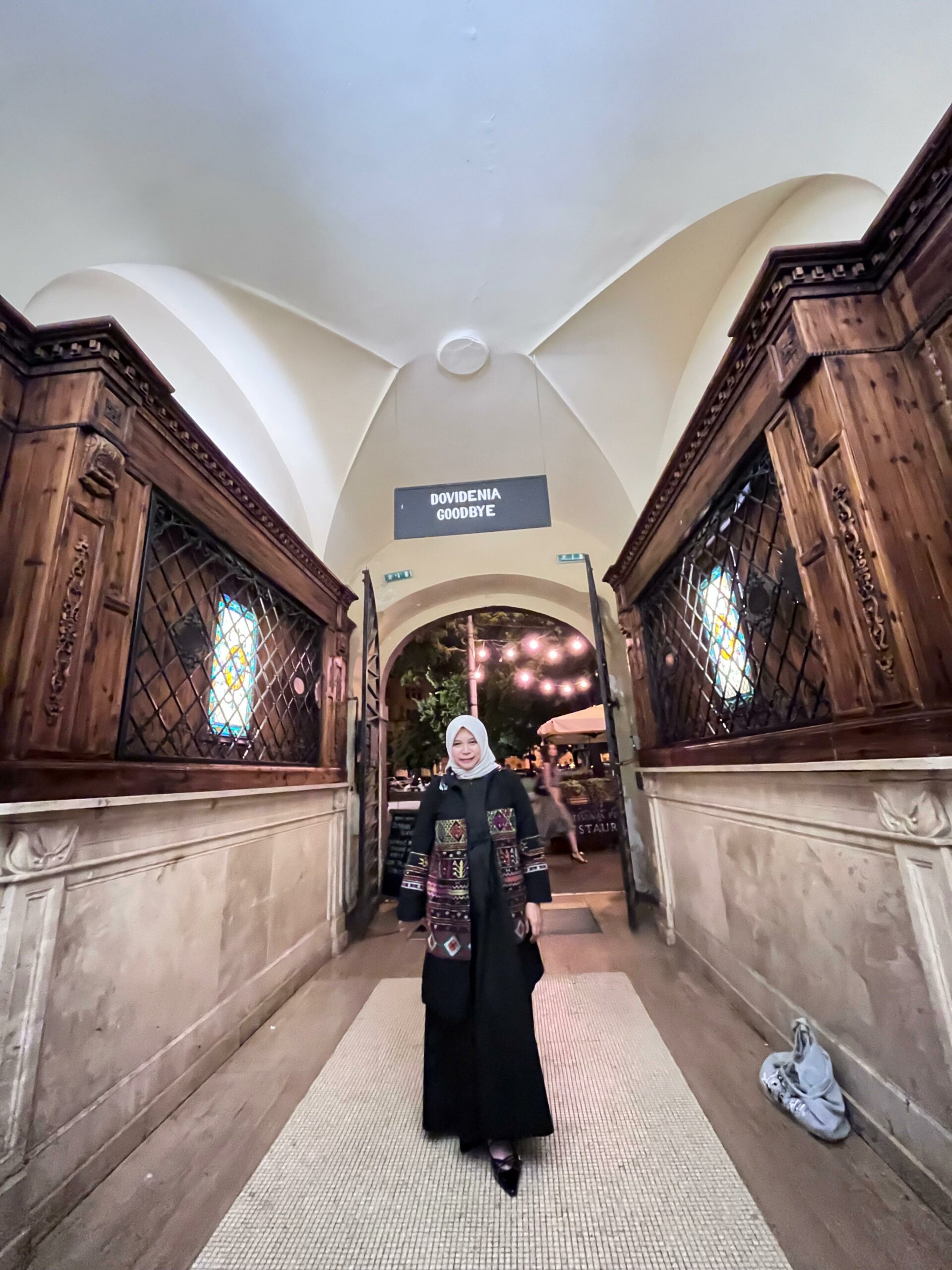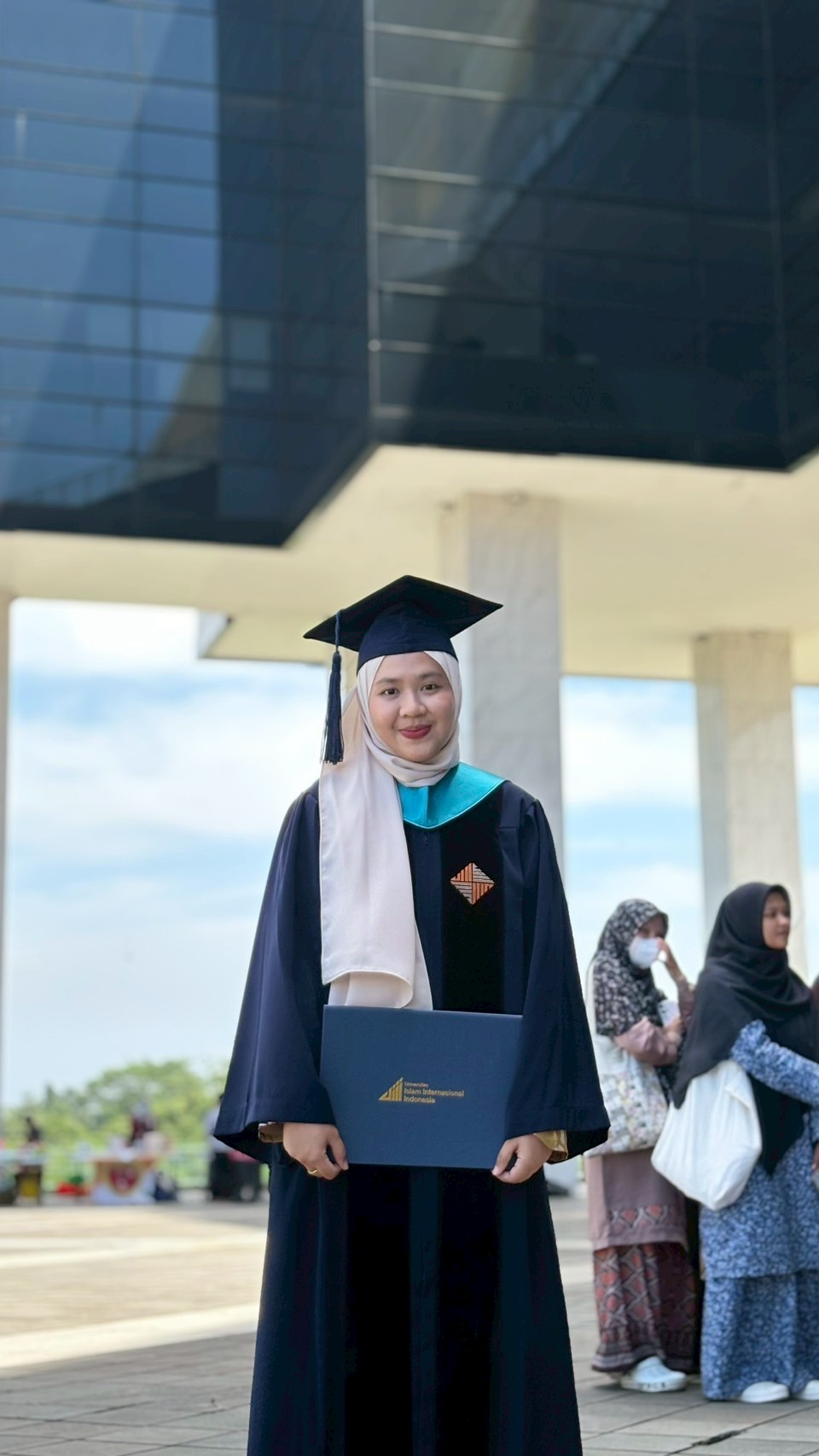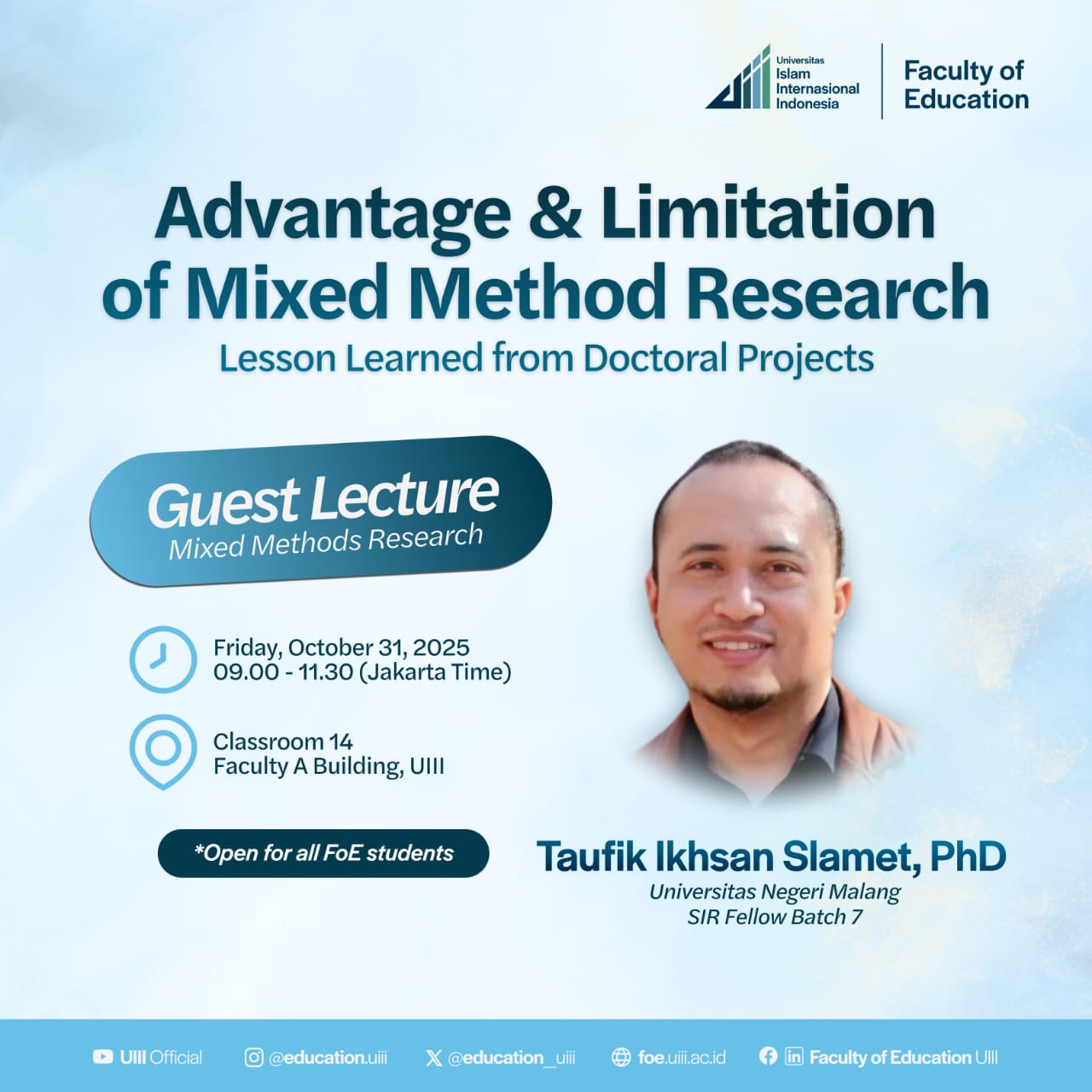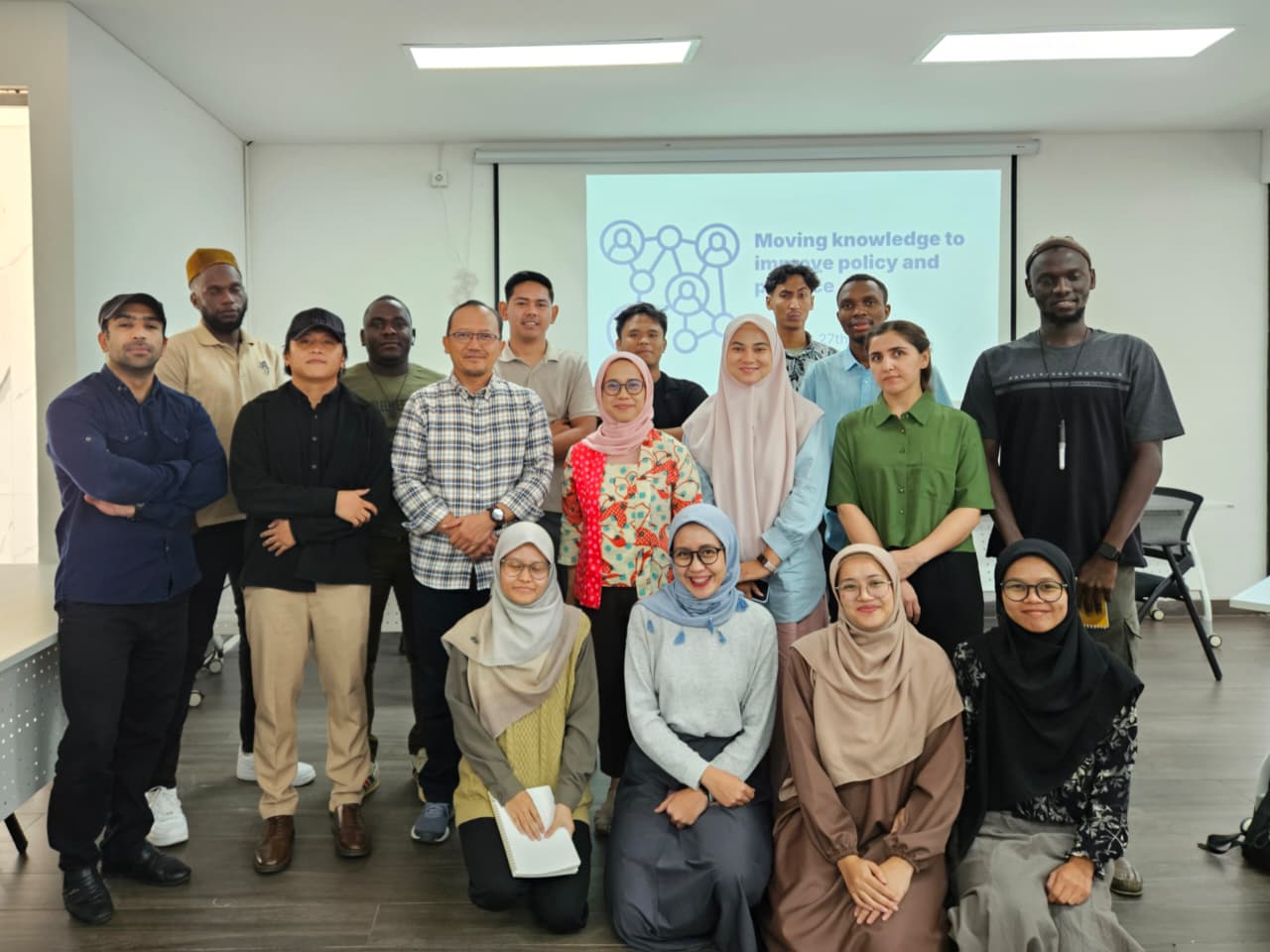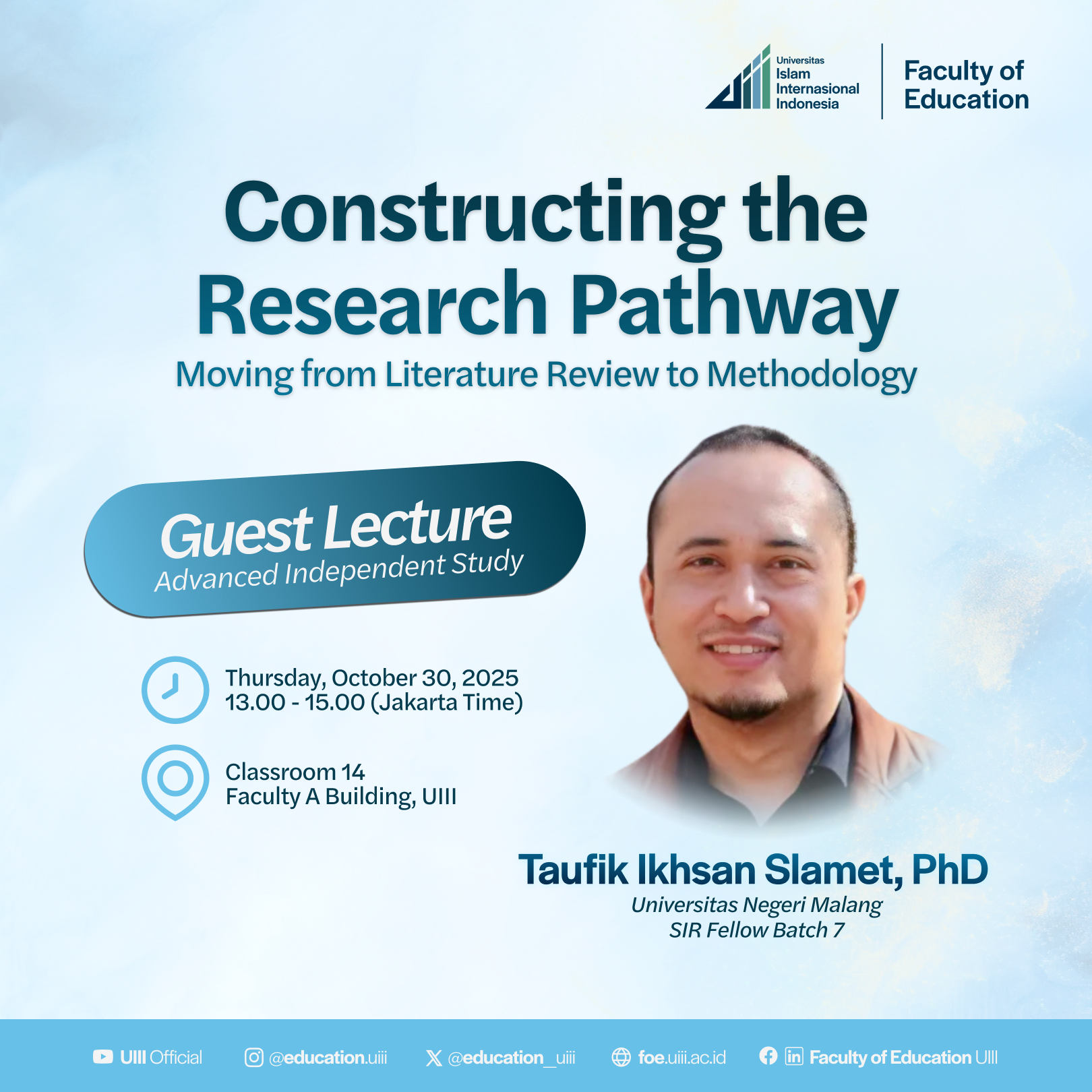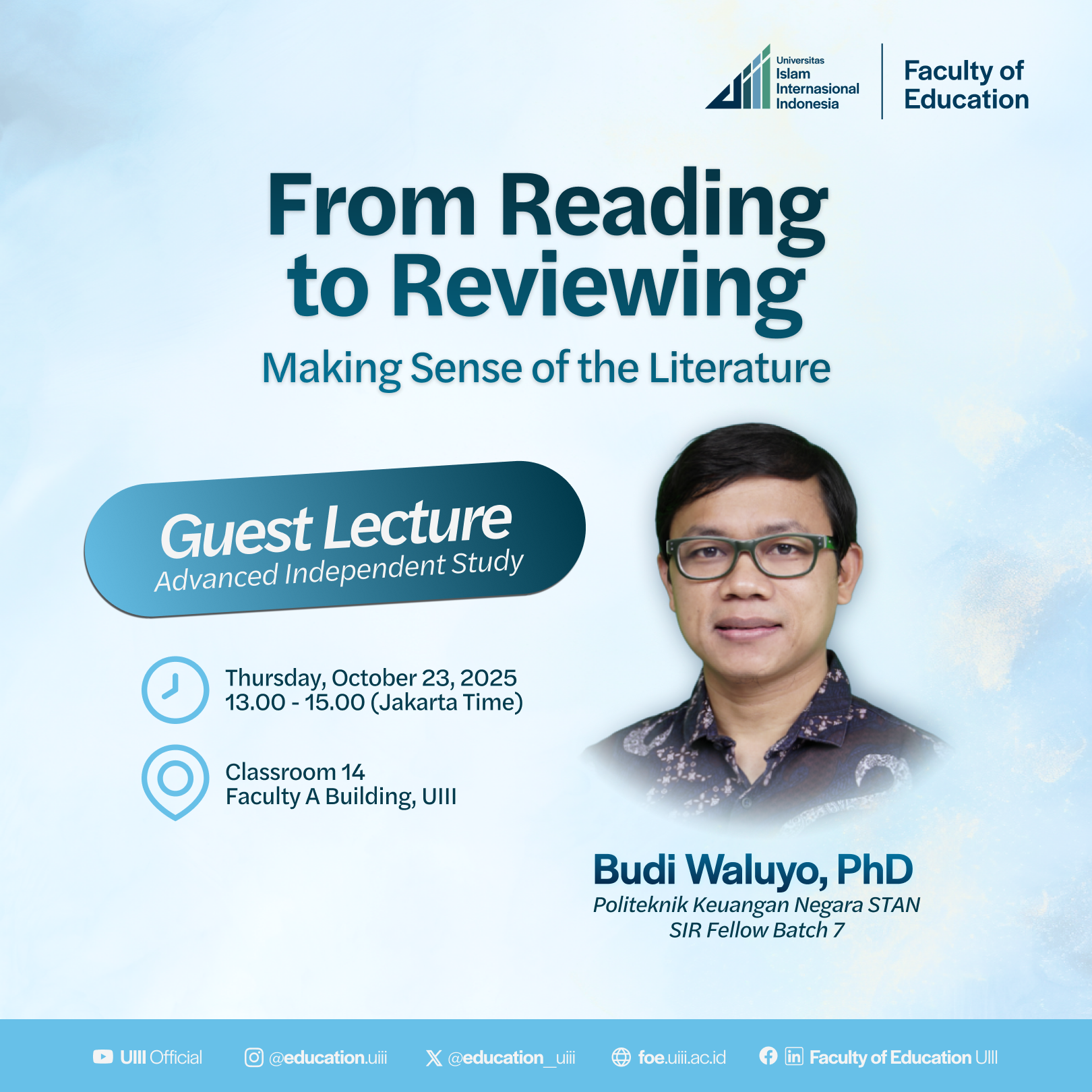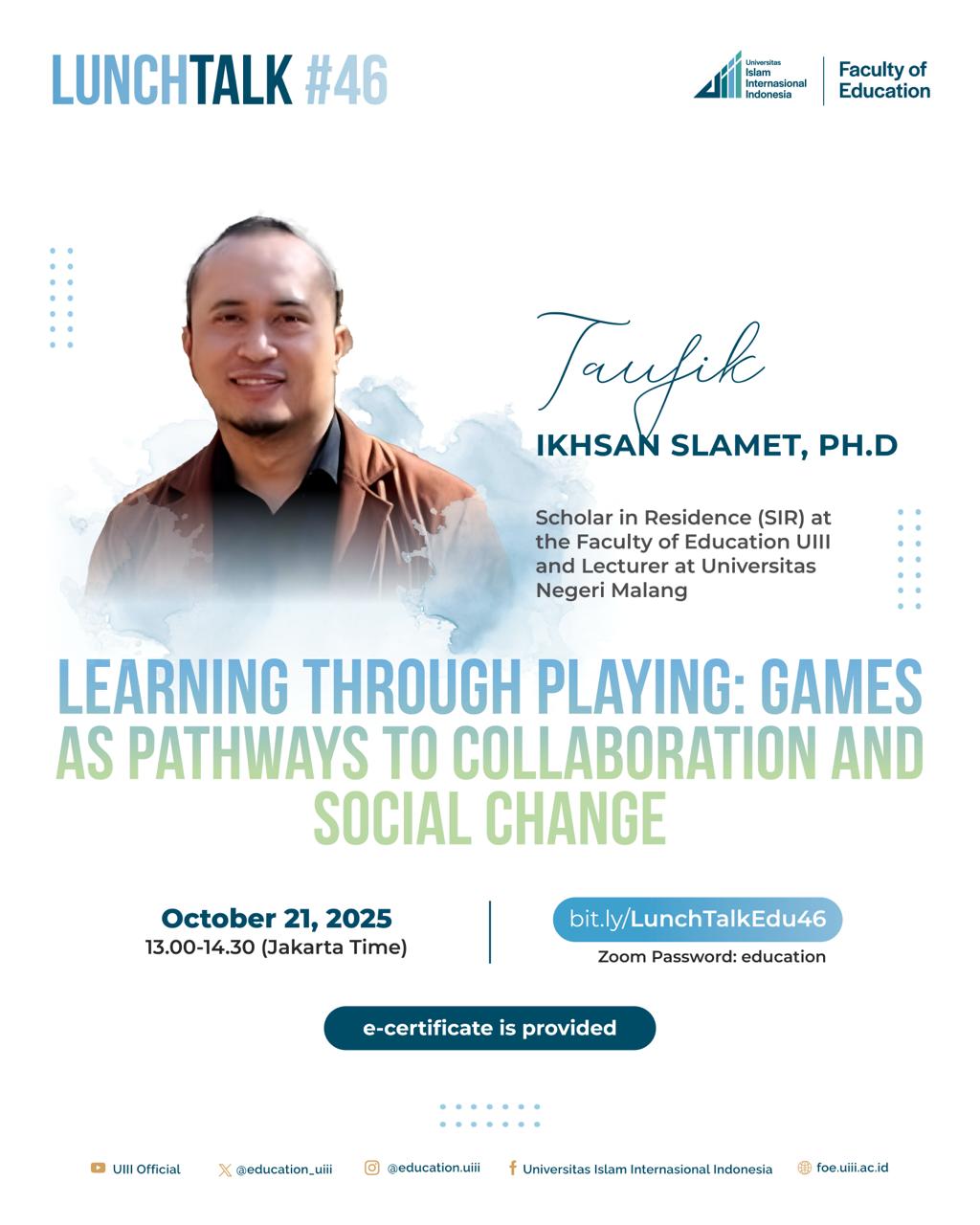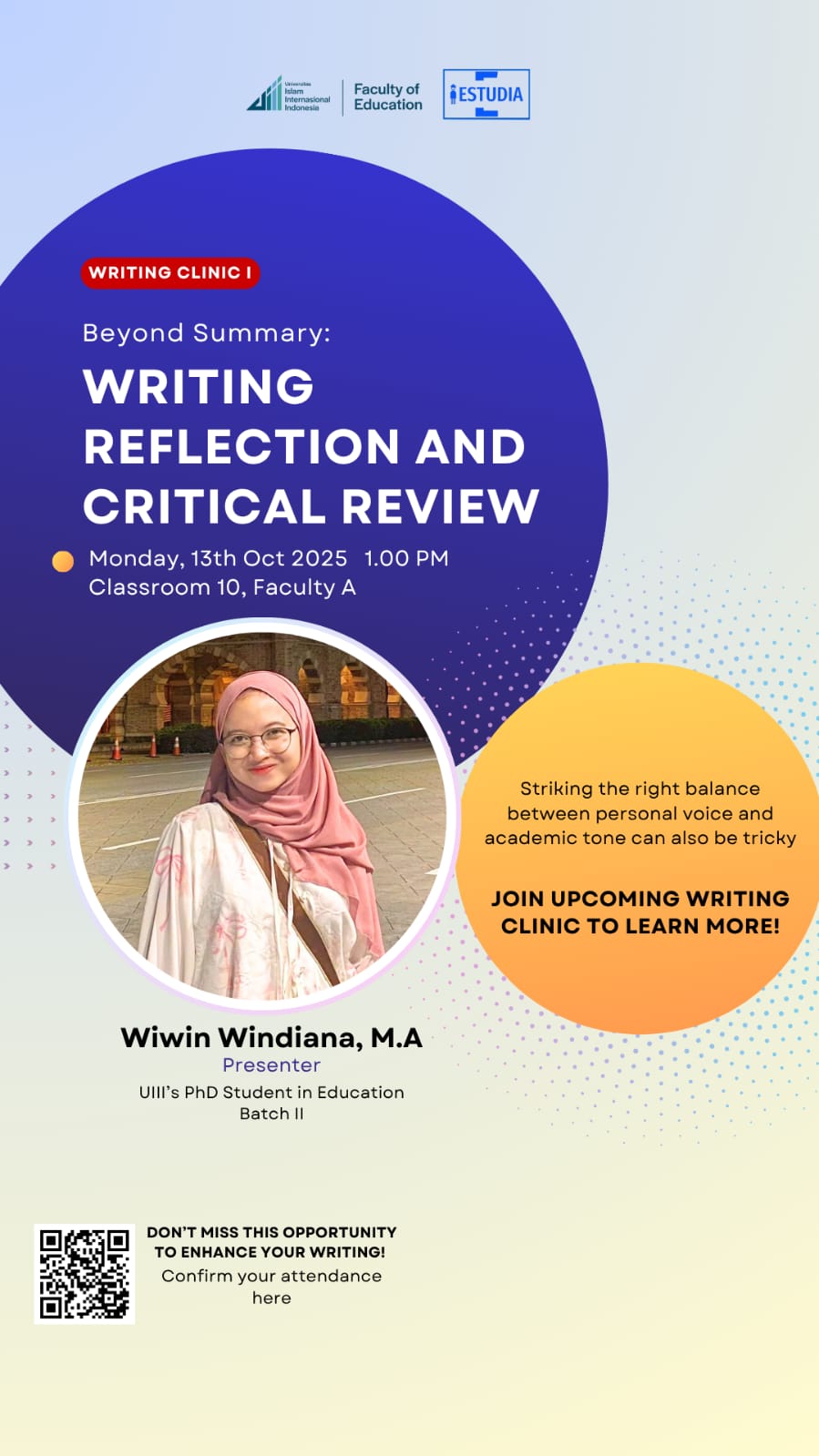Accreditation in a New Light: Perspectives from Indonesian Higher Education Leaders
 Accreditation in a New Light: Perspectives from Indonesian Higher Education Leaders
Accreditation in a New Light: Perspectives from Indonesian Higher Education Leaders
September 29, 2025
Contributor & Photo by: Virda Lalitya Umam
In 2023, Indonesian government through the Ministry of Education, Culture, Research, and Technology issued a Regulation No. 53/2023 on Quality Assurance of Higher Education, introducing a binary accreditation system of higher education study programs to fall into either ‘Accredited’ or ‘Unaccredited.’
This new accreditation scheme is said to be more inclusive, contrasting the previous hierarchical system which categorized universities and study programs into ‘Unaccredited’, ‘Good’, ‘Very Good’, and ‘Excellent’. However, two years after the enactment, its implementation remained mainly unknown, causing confusion among higher education institutions (HEIs).
As a response, the UIII Faculty of Education hosted a Focus Group Discussion (FGD) on August 20, 2025, under the title ‘Rethinking Accreditation Policy in Higher Education’. Moderated by lecturer Dr. Lukman Nul Hakim, the FGD brought together government representatives and higher education leaders, public and private, within and beyond Java, to share experiences and perspectives to address the issue.
Prof. Dr. H. Muchlas Samani, Chair of the Accreditation Council for Education (LAMDIK) started by clarifying the 2023 regulation’s status quo: “The revision is still underway” he said, whilst also acknowledging that the now-retracted legislation carried several risks, such as social problems due to the termination of unaccredited programs, resistance from HEIs, and eroding international trust.
“These consequences do not fully reflect the vision of Accreditation Councils (LAM), since they also promote the improvement of education quality instead of only measuring it,” Prof Samani said.
 In response to the problem, Prof. H. Iwan Jazadi, Ph.D., from STKIP Paracendekia NW Sumbawa, West Nusa Tenggara, highlighted the plights of rural education institutions in underdeveloped areas—such as those located outside Java—which mostly lack essential government support. This vacuum, in turn, creates layers of burdens for basic academic activities, more so in accreditation.
In response to the problem, Prof. H. Iwan Jazadi, Ph.D., from STKIP Paracendekia NW Sumbawa, West Nusa Tenggara, highlighted the plights of rural education institutions in underdeveloped areas—such as those located outside Java—which mostly lack essential government support. This vacuum, in turn, creates layers of burdens for basic academic activities, more so in accreditation.
Though also hailing from outside Java region, Prof. Dr. H. Mujiburrahman from Universitas Islam Negeri (UIN) Antasari Banjarmasin, South Kalimantan found the hierarchical system more appropriate, citing that accrediting is a multifaceted process. Nonetheless, he also stated that the current accreditation system still has many aspects to evaluate, particularly regarding data validity, administrative burdens, and over-generalized criteria.
Meanwhile, Representing HEIs from Java, Prof. Dr. drg. Lindawati S. Kusdhany, Sp.Pros, Subsp.PKIKG, Director of Academic Quality Assurance at Universitas Indonesia (UI) detailed UI’s experiences and challenges in the face of accreditation. Despite being a long-standing university with extensive networks and support, they, too, are now pushed to become increasingly independent.
 Similarly, Tatum Syarifah Adiningrum, Ph.D., Academic Development Senior Manager from Bina Nusantara (BINUS) University gave a behind-the-scenes of BINUS’s adaptation process to recent policy shifts as well as her own two cents on Indonesia’s accreditation scene, criticizing its constantly-changing standards.
Similarly, Tatum Syarifah Adiningrum, Ph.D., Academic Development Senior Manager from Bina Nusantara (BINUS) University gave a behind-the-scenes of BINUS’s adaptation process to recent policy shifts as well as her own two cents on Indonesia’s accreditation scene, criticizing its constantly-changing standards.
During a moderated discussion session, Prof. Jazadi and Dr. Adiningrum argued that continuing the hierarchical system in current conditions would only deepen discrimination, the former stating desperate HEIs would even resort to cheating the system. Meanwhile, Dr. Adiningrum, came up with a harsher statement saying that Indonesians have a “fetish for inequality”, made apparent by the public penchant for rankings over substance, including accreditation.
On the other hand, Prof. Mujib and Prof. Kusdhany shared doubts that a binary system could truly take quality into consideration. Prof. Kusdhany expressed that hierarchical accreditation encourages continuous improvement, while Prof. Mujiburrahman viewed the discourse surrounding accreditation akin to the readiness for democracy—instead of waiting for everyone to be prepared enough, it is better to implement an ideal system from the get-go.
Despite being split on the ideal practices for today, all speakers agree that there is much to improve in the current accreditation system. The discussion also highlighted how accreditation, like many policies in Indonesia, is still unsustainable and overly leader-centric—regulations can be swayed, but the implications toward HEIs are drastic.
Recalibrating public perception is equally important to reduce discrimination towards institutions and programs without specific statuses. Through this FGD, UIII hopes to contribute meaningful groundwork in reforming Indonesia’s accreditation policies, to ensure students and institutions alike can pursue a version of excellence that best suits them.
Where Empathy Meets Scholarship: Reflections from attending European Early Childhood Education Association (EECERA) conference
 Where Empathy Meets Scholarship: Reflections from attending European Early Childhood Education Association (EECERA) conference
Where Empathy Meets Scholarship: Reflections from attending European Early Childhood Education Association (EECERA) conference
By Syifa Mufiedatussalam
Attending the EECERA Conference in Bratislava, Slovakia, on 25-28 August 2025, was an unforgettable experience for me personally. I felt so proud to be part of a conference series that has been running for 43 years. The EECERA is widely recognized as one of the most reputable in the field of early childhood education in the world. And being held in Europe made it even more meaningful. The continent where early childhood education first took root, since Froebel to Montessori. So, it felt like returning to the source, learning directly from its origins.
I loved the atmosphere. At EECREA, the participants were not only brilliant scholars with remarkable contributions but also supportive, humble, and full of empathy. The vibes were incredibly positive. Everyone valued and respected each other, and I felt genuinely welcomed. From the very first sessions to the last conversations in the hallways, there was a sense of warmth, respect, and empathy. These were not just academics presenting data or theories. At EECERA, the participants were the people who genuinely cared about children’s futures.
Together with my supervisor, Assoc. Prof. Charyna Ayu Rizkyanti, PhD, I had the chance to discuss with the president of EECERA and the chief editor of the Early Childhood Education Research Journal (EECERJ). We chatted over coffee, shared stories, and learned more about how EECERA is expanding its reach across the globe. To our surprise, we were even invited to take on the role of EECERA Country Coordinators for Indonesia. It was an honor as well as a responsibility that we are eager to embrace.
I was also privileged to present two papers alongside my supervisor:
- Striking the Right Balance of Cognitive and Affective Empathy in Gen Z Early Childhood Teachers
- How Well Are You, Dear Early Childhood Teachers?

Sharing these papers in such a supportive environment was transformative. It was about bringing Indonesian voices to the international stage. We are also contributing to the ongoing global dialogue on early childhood education and teacher well-being. The feedback was thoughtful. At the same time, the discussions felt like genuine collaborations rather than critiques. We found a safe space to talk. All the ideas were not only tested but also nurtured. I left each session not with a sense of being judged. I felt appreciated. Because my study resonated with others who care deeply about the same issues.
Presenting my papers at EECERA was not only about sharing research findings. It was also about representing our country, Indonesia, at the international stage. I felt a deep sense of responsibility to bring the story of my country into the conversation. Indonesia is not just another context. It is a vast and complex nation. I reminded the audience that Indonesia is the world’s largest archipelago, with more than 17,000 islands located in Southeast Asia region. It is home to hundreds of ethnic groups, with over 800 living languages spoken across the country. This incredible diversity shapes not only daily life but also the way education is envisioned and practiced.
As I introduced my research, I shared how educational policies in Indonesia are designed to navigate this complexity. Many participants were surprised to learn about the scale of our nation, and about the challenges of implementing policies across such a geographically dispersed and culturally diverse population. For some of them, it was the first time they realized just how big Indonesia is, and how different our educational landscape looks compared to most countries in Europe. While many European countries deal with relatively more uniform systems, Indonesia must find ways to create unity while honoring diversity. This makes policymaking especially challenging, and fascinating.
This context provided the foundation for discussing the well-being of early childhood education (ECE) teachers in Indonesia. I explained that teacher well-being cannot be separated from the broader educational system and the cultural environment in which they work. When policies must address thousands of schools and communities spread across islands, the pressure on teachers often multiplies. Many teachers must balance not only professional expectations but also community roles and family responsibilities. By telling Indonesia’s story, I not only shared research data but also gave a human face to the challenges and aspirations of our teachers. In return, I received understanding, solidarity, and the reassurance that in EECERA, we are not alone.
In our discussions after the presentation, colleagues from different countries reflected on these challenges with empathy. We shared stories about how burnout has become a common issue among ECE teachers, regardless of country or system. Yet, the Indonesian context added another layer to this global issue. It made visible how systemic complexity can amplify stress for teachers. The recognition that burnout is not just an individual problem but a structural and cultural one sparked rich conversation with fellow scholars.
Together, we came to a shared understanding: improving teacher well-being is a collective responsibility. It is not something a single teacher, institution, or even a single country can tackle alone. Within EECERA, we all have a part to play in fostering empathy and care for the people who dedicate their lives to nurturing young children. Teacher well-being is not a luxury; it is a necessity if we want quality education for all.
What made EECERA truly unforgettable was the spirit of community. I found myself surrounded by scholars who were open in their hearts. These moments reminded me that conferences are as much about people as they are about papers. The friendships and networks formed here will stay with me, shaping not only my research trajectory but also my professional identity. This reminds me about empathy. The value we bring to this professional community. EECERA is a community where empathy meets scholarship. A community that truly cares about children, teachers, and the future of education. I am honored to have been a part of it. It was more than just a conference. It was a space to learn, to share, and to feel the warmth of a community.
Beyond a Profession Education Lives as a Discipline of Knowledge and Social Change
 Beyond a Profession Education Lives as a Discipline of Knowledge and Social Change
Beyond a Profession Education Lives as a Discipline of Knowledge and Social Change
Insof Waeji
As a student who studied in Indonesia for seven years, from bachelor's to master's level, I feel this is an extraordinary award. I am truly grateful to Allah SWT for being given the opportunity to gain knowledge in the land of the Republic of Indonesia, especially to be part of the Indonesian International Islamic University (UIII). This campus is relatively new, and I was fortunate to be part of the third batch at the Faculty of Education. Despite its young age, UIII offers progressive learning innovations as well as a rigorous and focused education system.
For me, continuing my studies in the field of education is a dream I have been dreaming of for a long time. Education here is not only understood as limited to printing teachers of subjects. More than that, I found that educational science covers various important aspects on a large scale from policy, literacy, well-being, assessment, evaluation, technology, leadership, equity, society, to educational philosophy. People often ask me, "Then what kind of teacher will you be after you graduated? English teacher, right?" That question sometimes makes me smile, because the answer is not that simple. The knowledge of education that I learned is not only about teaching in the classroom, but also about the contribution that can be made to the education sector in general, even touching the realm of political and economic policy. Explaining it is sometimes quite complicated, but that is exactly where the wealth of this discipline lies.
Education at UIII is also the main field for me to try to become a researcher, participating in conferences, and get involved in various projects that contribute to the field of education. Through this experience, I had the opportunity to interact and learn directly from academics, researchers, and inspiring lecturers, who are not only enriched my vision but also shaped my critical thinking and professionalism. In addition, the various tasks given by lecturers are varied, ranging from individual work to group projects, from academic essays to scientific articles. All of that has indirectly sharpened my writing skills and analytical skills. The process requires patience, creativity, and the ability to work together, so I feel that this academic journey shapes my character and way of thinking.
More than that, the experience of learning in class is enjoyable and challenging. Each subject is like a piece of a puzzle that slowly merges into a big picture of the world of education. Class discussions teach us to think critically, especially because the friends come from various countries with diverse experiences and educational contexts. As a student from Southern Thailand a region with a complex, unique political system that has direct implications for education, I learned a lot to compare best practices from other countries while reflecting on the challenges in my home country. Looking back on this seven-year journey, I realize that my time in RI and at UIII has been more than just obtaining knowledge, it has been process of growth, self-discovery, and building a vision for the kind of contribution I hope to make in the education field. As I move forward, I carry with me the invaluable experiences of collaboration, research, and intercultural engagement that have shaped me into the educator I aspire to become.
Guest Lecture: Moving Knowledge to Improve Policy and Practice

On Monday, 27 October 2025, Nisa Felicia Faridz, PhD from PSPK (Pusat Studi Pendidikan dan Kebijakan), Jakarta, provided guest lecture entitle, "Moving Knowledge to Improve Policy and Practice" in Educational Policy Analysis class, an MA course.
Public Lecture: Artificial Intelligence in Education: Are We Outsourcing Our Brains and the New Paradigm of Information Behaviour

What happens when artificial intelligence becomes part of how we learn?
Join Dr. Milan Regec from Comenius University in Bratislava in a public lecture discussing “Artificial Intelligence in Education: Are We Outsourcing Our Brains and the New Paradigm of Information Behaviour.”
? Date: 23 October 2025
? Time: 09.30 AM
? Venue: Theatre, Faculty A Building, UIII
This lecture is open to the public.
Lunch Talk #46: Learning Through Playing: Games as Pathways to Collaboration and Social Change

You are invited to join the Lunch Talk #46 at the Faculty of Education, UIII
Taufik Ikhsan Slamet, PhD (Scholar in Residence (SIR) at the Faculty of Education UIII and Lecturer at Universitas Negeri Malang) will share about: "Learning Through Playing: Games as Pathways to Collaboration and Social Change".
Games can make learning memorable and bring complex social issues to life. In this session, the speaker shares his experiences using gamification to enhance collaborative learning and engagement, then explores how game-based learning can help students understand sustainability challenges. By blending play with critical inquiry, games create opportunities for empathy, problem-solving, and deeper connections to real-world issues. This talk highlights how playful approaches can humanize education and inspire learners to see themselves as active agents of change.
Day/Date: Tuesday/October 21, 2025
Time: 13.00-14.30 (Jakarta Time)
Place: Theater, Faculty A Building
Online participation:
https://bit.ly/LunchTalkEdu46
E-Certificate is provided
Thank you!
Recorded on YouTube
https://www.youtube.com/watch?v=snb2st6nHSE
Beyond Summary: Writing Reflection and Critical Review

Hello!
Writing Clinic 1
"Beyond Summary: Writing Reflection and Critical Review"
Writing critical review and reflection are often more challenging. Striking the right balance between personal voice and academic tone can also be tricky.
Join upcoming Writing Clinic to learn more.
? Date: October 13, 2025
? Time: 13:00
? Location: Classroom 13, Faculty A
??? Presenter:
Wiwin Windiana (Ph.D Student Batch 2)
Don’t miss this opportunity to enhance your writing!
Drop your reflection or crtical review here:
https://tinyurl.com/WritingClinic1

